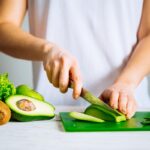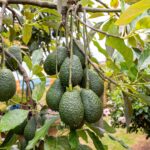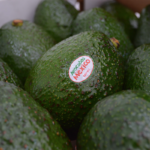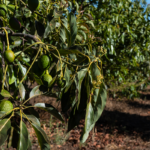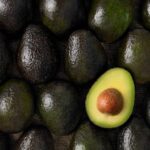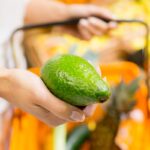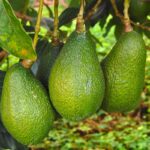Clonal avocado trees, the future of the industry in some origins

Weather conditions around the world, often unpredictable, are increasingly challenging for avocado growers. Whether due to lack or excess rainfall, the industry requires plants that are more resistant to infections, and with higher productivity.
Clonal rootstocks are the foot of the plant on which grafting is performed and provide the characteristics of tolerance to soil conditions.
During Territorio Aguacate 2024, held in Medellin, Colombia, a panel of experts analyzed this aspect based on their experiences with conventional and clonal trees in Latin America.
In Colombia, due to frequent rainfall, soils have high moisture retention, which suffocates plants due to low oxygen availability, and are more likely to be infected with soil fungi such as Phytophthora cinnamomi.
As a consequence, crops are less productive, less homogeneous, or, in the worst case, lead to the death of the plants, which translates to a loss for the grower.
Dorancé Flórez, founder of Aguacates Flórez, explained that he has both conventional and clonal plants on his Hass avocado farm. He said that clonal plants have been a very important change for the industry.
“There is a very big difference between both trees, with a big differential productive capacity,” Flórez said.
“Clonal plants have allowed us to replant our lands that have lost their conventional plants over time, allowing us to have get production back,” he added.
Regarding the clonal plants, he expressed being “in love” with them, since of the 5,000 clonal trees he has, “there is not a single one that I see problems with, it is homogeneity.” He added that the roots develop very well and have resistance in Colombia's shallow soil.
“Concerning productivity, I am also surprised, since three-year-old plants have incredible productivity, giving on average 51 kg per plant,” Flórez said. “They have a much greater productive capacity than conventional plants.”
“I am convinced that in two years, I will be producing between 40 to 50 tons per hectare in plants with clonals,” the grower assured.
Increasing the competitiveness of producers
To be competitive, the panelists agreed they must have a quality product, with the right volume to deliver to consumers. For Flórez, clonals will give all Colombian producers that ability.
Wilmar Perez, another member of the panel, who is the technical director of Westfalia Fruit producers, said he is in charge of the development of clonal nurseries.
From Westfalia, Perez said that a vital point is that the basis for economic sustainability is agronomic stability.
“We have seen that we have achieved agronomic stability through clonals, along with good practices in the field,” Perez said. “We have been able to have higher productivity than with a seed tree, which in the long run gives us economic sustainability.”
He added that this allows producers to develop long-term projects.
“In Westfalia, everything we are replanting now is with clonals, because what we have seen so far with information and data, measuring and being in the field is that the clonal tree is the future for us,” Perez said.
“We can see it very clearly in countries like Chile, which is selling around 400,000 clonal trees annually and due to environmental conditions are decreasing their planting areas, but annual sales of clones are maintained because the trees are replanted with clones.
In his opinion, the economic sustainability of the avocado industry in Colombia will depend a lot on management. “There are points that we cannot manage, such as climate, but there are other agronomic points that we can, and among those is the genetic issue.”
Exceptions
However, Perez said that clonals are not essential for all avocado origins. For example, in Peru, seed trees are more stable due to climatic conditions and clonal trees are starting to enter the market.
“They have good results with seed trees in Peru, however, in Colombia we are already in the process of importing five more rootstocks next year.”
He insisted on the importance of increasing these new genetics and investing in variability, testing, and having data on their performance to achieve good productivity.
Production volumes with clonal trees
Based on his experience, Perez said that high productivity figures are possible, however, the result is also altered by the climate issue, which is impossible to control.
“For me, 50% of the result is a climatic issue, however, with the remaining 50% that if I can manage, if I invest in clonal trees, I can likely have a profitability that allows me to be economically viable,” Perez maintained.
For him, field management in the field is also fundamental, together with new genetics, as it is a way to face climatic challenges.
For his part, Wilson Giraldo, from Hass Naranjo, said during his speech that clonal trees reduce, almost completely, the loss of trees.
“If one establishes 200 trees, it is very rare for one to die, which leads us to have more productivity,” said Giraldo. “In addition, in soils with a lot of clay that accumulates water, the surface layer where the roots of Hass trees with clones develop are much better, compared to conventional ones with floating roots, which generate yellowing and losses when they reach the clay.”
However, he emphasized the importance of taking proper care with clonal trees, since having more roots requires more fertilization, nutrients, and proper drainage along with weed management.
Amanda Quintero, from Cartama, said that considering the increase in the cost of land, inputs, and fertilizers, the impact of cloning is definitive, because “if they manage to have an orchard that is homogeneous, that all the trees produce better and earlier, they will be able to pay back their investment”.
*Photos by Corpohass
















